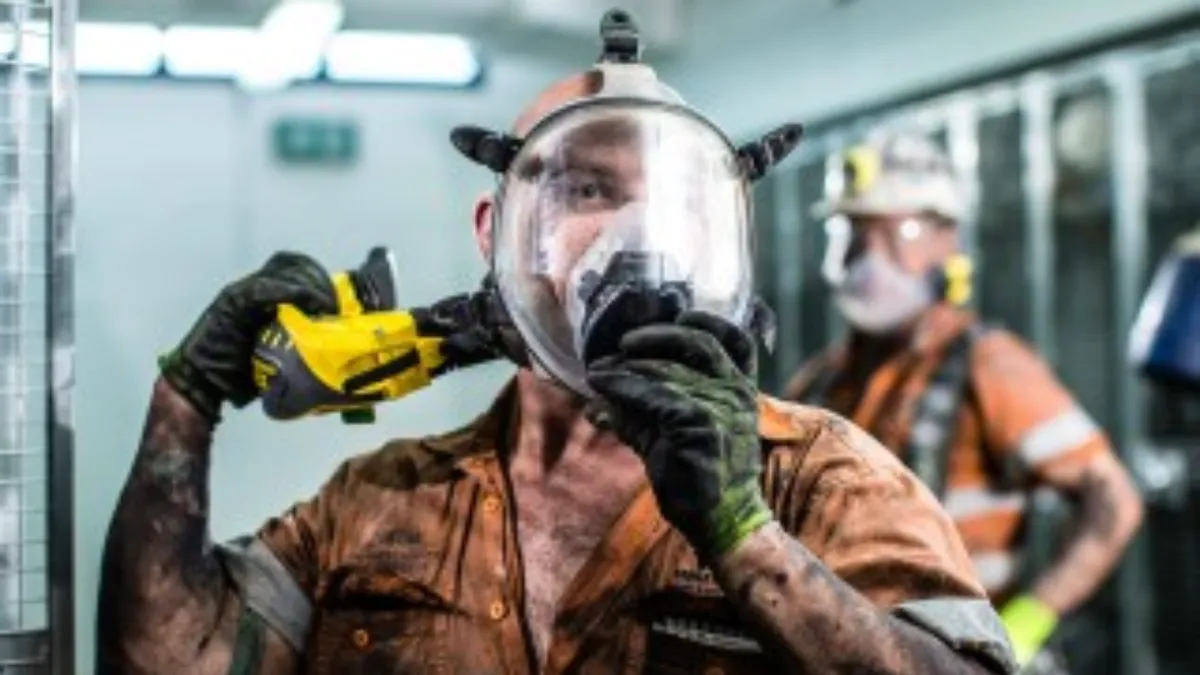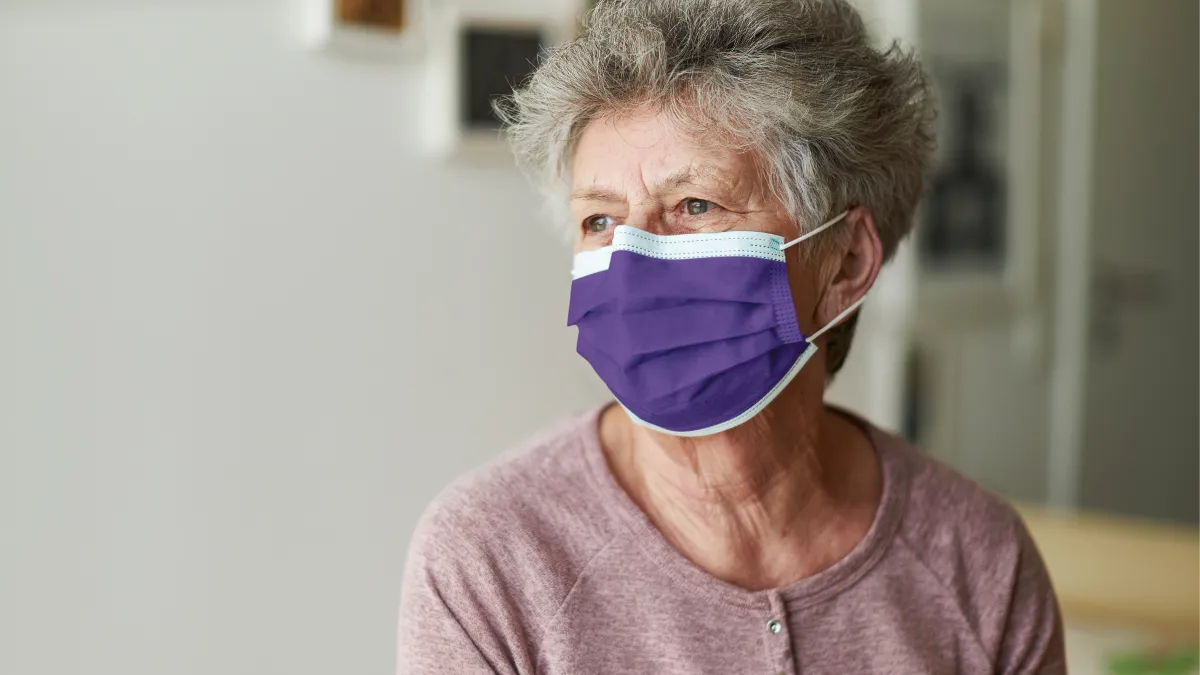Spirometry testing for oil refinery workers

The process of refining crude oil into gasoline, lubricants, and other industrial materials is complex and customized for each product. As the name implies, oil refining is a chemical process that releases toxic fumes with every step. These fumes are essentially burning carbon molecules or soot, which is the root byproduct of coal and other fossil fuels.
While most oil refineries offer personal protective equipment such as respirators to their employees during production, harmful emissions are constantly present – even within miles of the facility.
To continually monitor the health of oil refinery workers, many facilities offer occupational health pulmonary testing.
Why is respiratory testing so important in fossil fuel industries? #
When completed by professionals and using high-quality spirometers, the lung capacity of oil refinery employees can be verified. This can help reduce the burden of developing respiratory diseases such as Chronic Obstructive Pulmonary Disease (COPD).
The Global Burden of Disease Study indicates that 251 million people lived with COPD in 2016. Additional population studies confirm that up to 21 percent of the burden of COPD can be linked with workplace exposure to toxins and chemical inhalation.
Occupational health spirometry screening in the manufacturing and exploration of fossil fuels, such as coal, oil, and natural gas, is a crucial step in helping to continually monitor employee lung function.
What is occupational health screening? #
Occupational health is a field of study that is comprised of multiple disciplines aimed at improving the safety and well-being of employees in their workplace. Whether completed by organizational employees or outsourced to third-party experts, its primary focus is to provide resources, education, and health-based screening or services that focus on preventing injury or the onset of medical conditions or diseases.
Several global industries include spirometry testing as part of their occupational health programs. A few of the common industries joining oil and gas refining and exploration include:
- Coal mining
- Manufacturing
- Transportation
- HVAC and plumbing
Risks to lung function from carbon emissions #
Regardless of the industry, when an employee is not able to work due to illness, production falls, costs increase, and goals are not met. Since oil refinery employees are continually exposed to vapors and emissions of carbon, their lungs are constantly inundated with toxins that can lead to irreversible damage.
However, progressive lung disease is not the only respiratory-related condition that can threaten workers at oil refineries.
Many of these facilities are in remote areas, which also introduces exposure to dust, pollen, and other irritants. This can, and often does, result in activating hidden allergies or asthmatic conditions.
What is the best way to measure lung capacity? #
Spirometry testing is a non-invasive, and effective method of monitoring the lung capacity and wellness of workers in the oil and gas refinery industry. While the emissions produced at these facilities are primary concerns to the employer, additional risk factors such as smoking (either on the job or outside of work) and improper ventilation of indoor manufacturing segments are additional risk factors.
The main hurdle several companies experience is the ease-of-use of outdated and bulky spirometers. Additional problems exist when those completing the testing are not fully trained or use technology and equipment that requires constant calibration or special procedures or testing locations to produce a robust and accurate result.
These issues are mitigated when this testing is completed with ndd Medical Technologies’ EasyOne Air line of portable, lightweight, and battery-operated spirometers.
Can portable spirometry improve occupational health? #
Modern technology, Swiss-precision manufacturing, and creative engineering have created a new line of hand-held and portable spirometers. The EasyOne Air is a perfect spirometer for testing at work locations such as oil refineries.
TrueFlow™ technology built into each EasyOne lung function testing device permits ease-of-use and produces robust and accurate results. The fully lit LED screen of the EasyOne Air is easy to read. The controls and operating steps are simple to navigate, while the high-quality components and rigorous quality control ensures worry-free operation.
EasyOne Air for routine portable spirometry #
The advanced technology and user-friendly features found in the EasyOne Air offer occupational health experts serving the oil and gas industry with a plethora of competitive advantages.
- Lightweight and Portable: The EasyOne Air weighs less than a pound, is hand-held, and can be used indoors.
- Displays Real-Time Curves: This portable spirometer displays real-time curves on the LED screen for quicker and accurate results.
- Single-patient use mouthpiece: To accelerate testing among multiple employees and to reduce the potential of cross-contamination, the EasyOne Air includes FlowTubes. They are disposable single-patient-use mouthpieces for ndd EasyOne Air spirometers.
- Connects with Leading Occupational Health Software: We’ve designed the EasyOne Air with software that is compatible with occupational health software applications.
- Battery Powered for 100 Remote Tests: The EasyOne Air spirometer uses a rechargeable lithium-ion battery. An empty battery can be fully charged in about 5 hours. A fully-charged battery can support the performance of approximately 100 spirometry test sessions.
Why invest in portable spirometry? #
It’s difficult to gather employees in a conference room or warehouse to complete onsitepulmonary testing. Many oil refineries simply don’t have the space available to set up older spirometers or lung function testing equipment that must be used in a stationary environment.
The ndd Medical Technologies EasyOne Air mitigates these problems with its portable functionality. The system is designed to be used inside, in remote locations, and without a power supply if necessary. This flexibility gives testers the ability to complete spirometry testing directly onsite.
How can we safely perform spirometry testing during COVID-19? #
The internal sensors and design of the FlowTube ensure that the patient’s breath flows unobstructed. And ndd’s inline filter solutions are designed to provide additional COVID-19 protection for industries or organizations looking to include filtration when performing these tests.
- The filter helps keep the ambient environment clean for both patients and technicians.
- All parts that are exposed to the patient’s breath are single-patient use.
- Contact free measurement ensures superior hygiene and protects the sensor from being contaminated.
- The EasyOne Air single-patient use FlowTubes require no special storage conditions.
Visit our COVID-19 Infection Control page for more information.
Has the EasyOne Air revolutionized spirometry testing? #
The EasyOne Air was designed to remove all objections from completing pulmonary testing in potentially hazardous facilities like oil refineries. The EasyOne Air helps streamline and improve pulmonary testing. It is a user-friendly spirometer that can be used onsite, at health fairs, and at public screening events.
Clinicians love it because it can be used both as a PC-based or portable spirometer, producing robust and consistent results regardless of the environmental factors or setting.
Once all testing has been completed, the results can be quickly uploaded to your occupational health software, with individual patient testing results protected and secure. For added flexibility, you can easily connect to your PC for real-time patient incentives, data exchange, and EMR connectivity.
If you’d like to learn more about the EasyOne Air portable spirometer for use in the oil refinery or gas exploration industry – contact us today.









